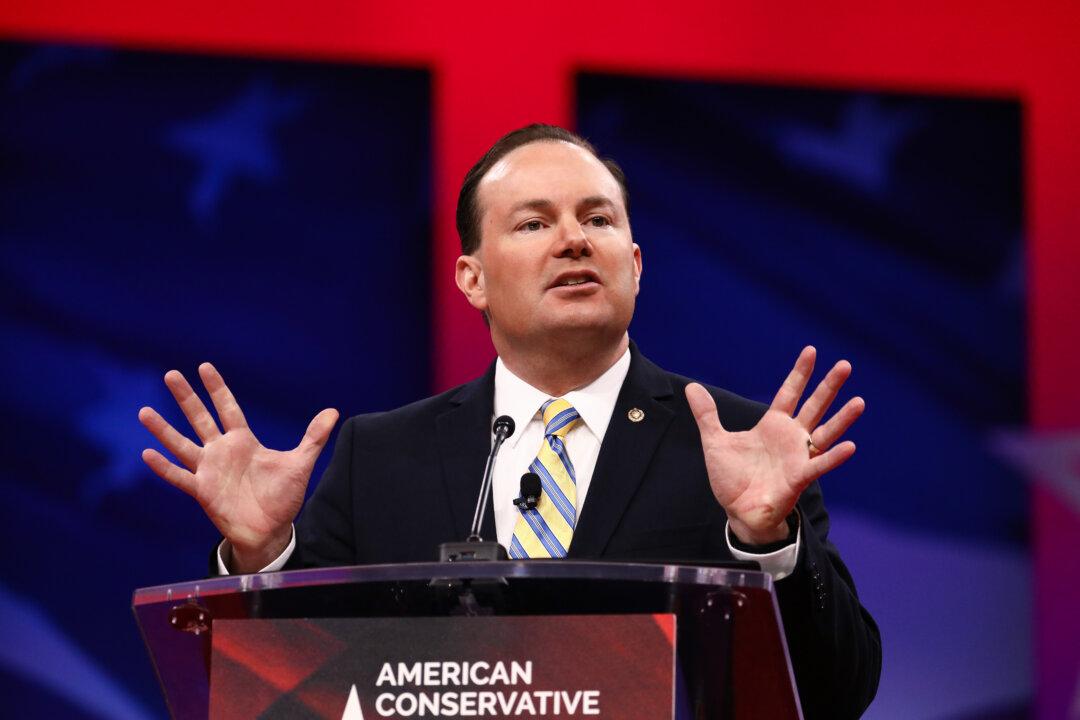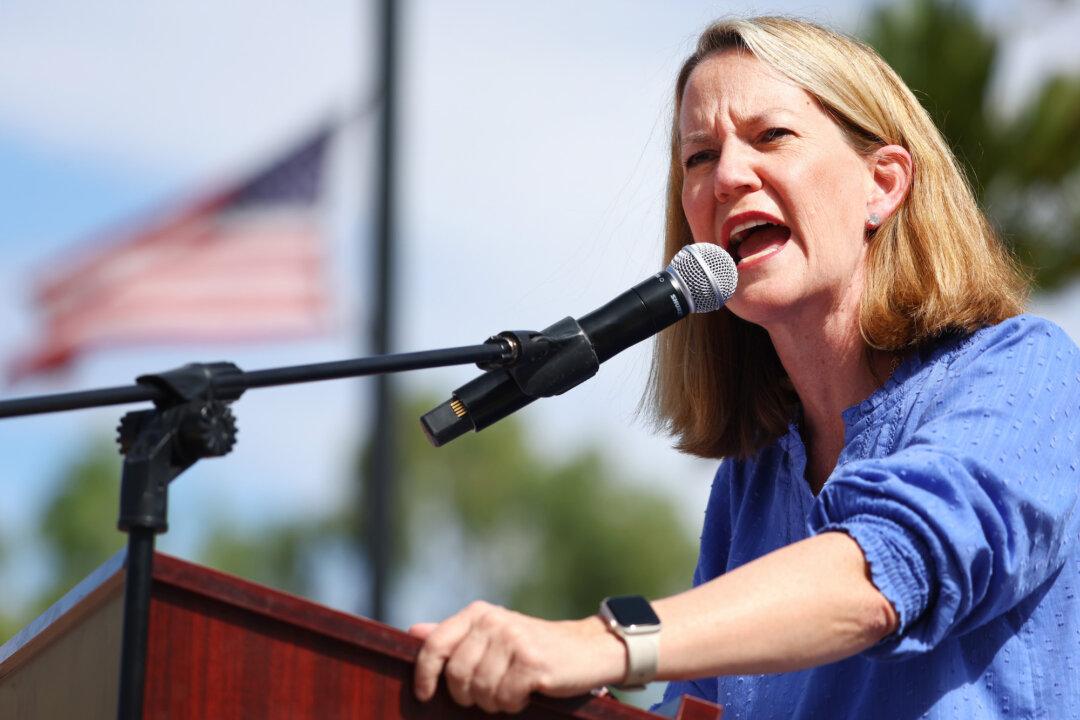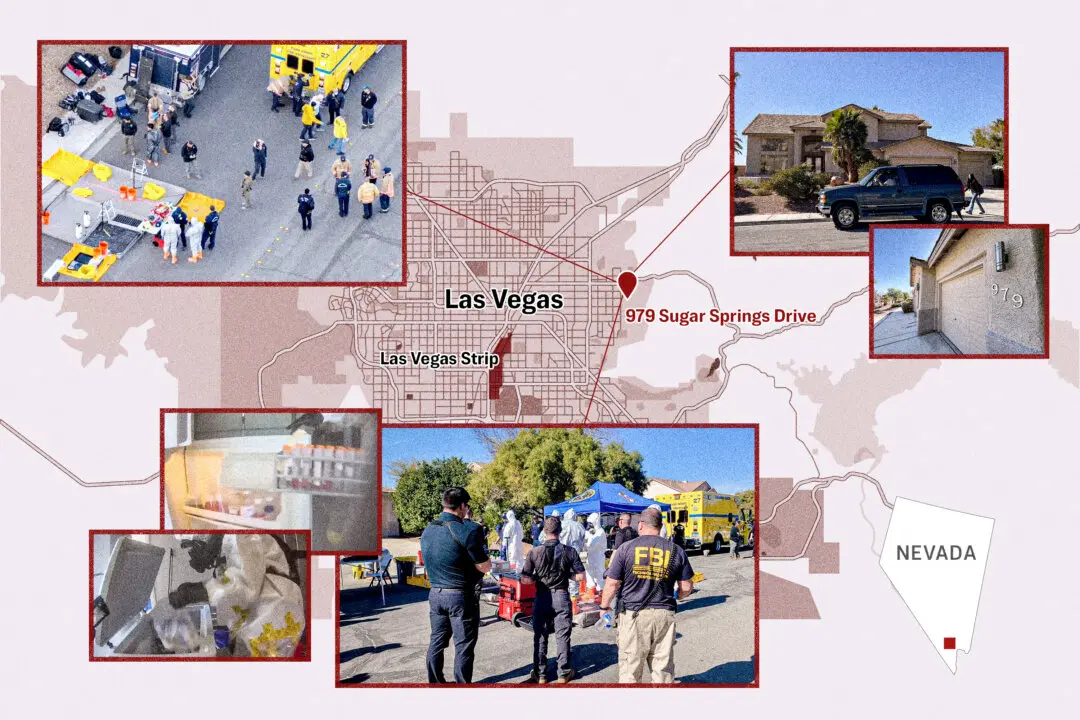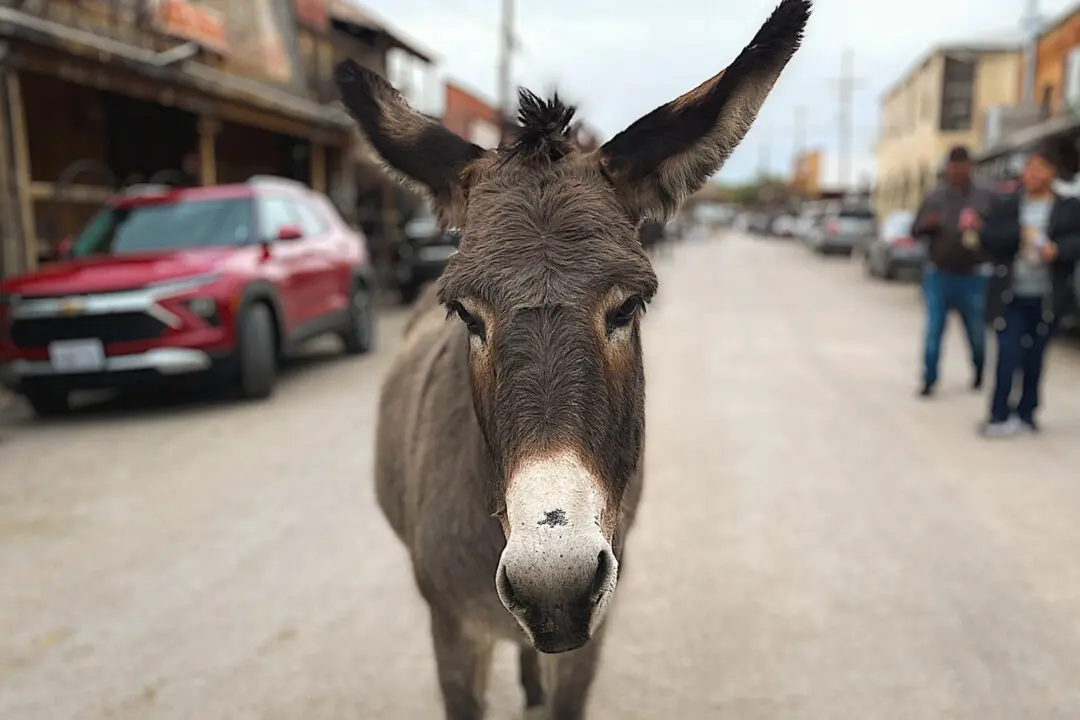Incumbent U.S. Sen. Mike Lee (R-Utah) will face two Republican opponents in Utah’s June 28 primary in what might turn out to be a challenging reelection bid.
In 2010, Lee sailed into office on a Tea Party wave after defeating three-term incumbent Sen. Bob Bennett in the Republican primary. He was reelected in 2016, trouncing Democrat rival Misty Snow with nearly 68 percent of the vote.





